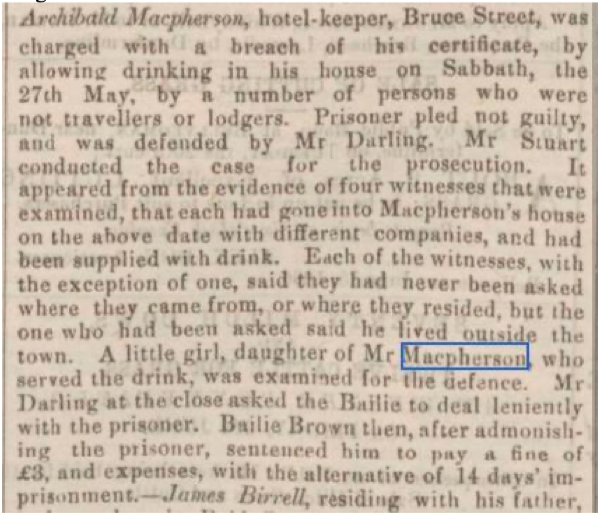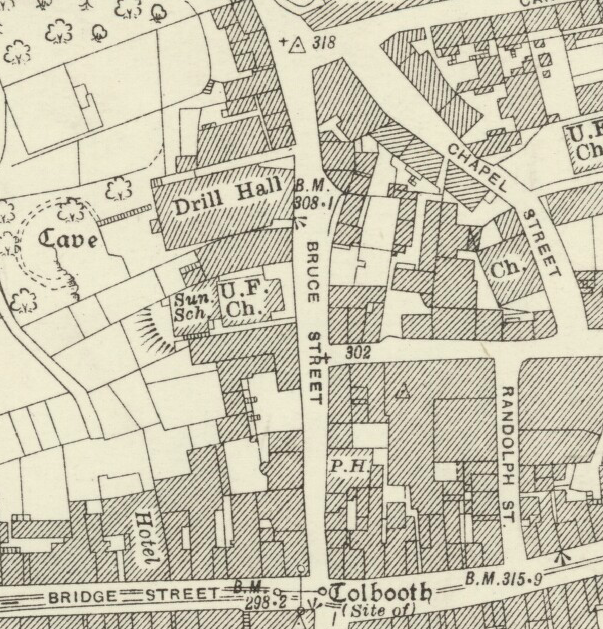When Henry Crombie purchased the original hospitality business on Bruce Street in 1837, he offered accommodation and renamed it the Crombie Hotel. He also started a bake house and shop next door.
Henry’s brother John took over the lease of the Hotel in 1854 and the venue provided hospitality to local groups like United Burns Club dinners and farewell parties, etc. It even hosted the odd meeting of striking miners planning to secure better working conditions.
John Crombie’s reputation and standing in the community was rewarded with election as one of six Dunfermline Commissioners of Police in 1860. A role which was responsible for town services like street cleaning, lighting, etc. and also management of a Police Superintendent and constables.
Archibald McPherson, a spirit dealer from nearby Cairneyhill, and his family took over the Crombie Hotel lease in May 1864. Sadly, his experience of trading was not as fortunate as the Crombie family.
Within a month of moving in, two of McPherson’s four children died from scarlet fever, aged only 2 and 4. A year later his application for a Hotel Licence was rejected twice due to “lack of statutory accommodation”.
And there was more trouble the following year, this time the local newspaper reports McPherson in the Burgh Police Court for breach of his certificate. He is accused of allowing four customers who were not lodgers or travellers to be served alcohol on a Sunday. Pleading not guilty the Court decided otherwise and Bailie Brown sentenced McPherson to pay a fine of £3 and expenses or take 14 days imprisonment.

Fife Cultural Trust (Dunfermline Local Studies) on behalf of Fife Council
By 1878 the Crombie Hotel is renamed The Bruce and we read proprietor Henry Adams is charged with a similar offence to McPherson’s in 1866. This time Adams’ charge is found not proven because the distance of the customer’s home was questioned as to whether it was in the town or not. Thus the unique Scots Law decision of not-proven was taken.
It wasn’t just the licensee in trouble for such offences. In 1887 two labourers from North Queensferry working on the new Forth Bridge had a drink in The Bruce on a Sunday. They said they were travellers, however they had stayed overnight in Dunfermline. That was enough to be found guilty of the charge and each was fined £1 or ten days in prison.
We don’t know which they opted for, however we do know you can now happily enjoy a drink in the Bruce Tavern on a Sunday with no recourse to whether you live here or are visiting!
